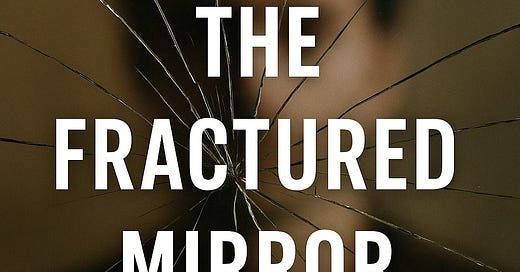The Fractured Mirror: Truth in the Age of Noise
At the intersection of clarity, care, and complexity
“The opposite of truth isn’t always a lie. Sometimes, it’s certainty.”
There was a time — or so we like to remember — when truth felt shared.
Not always convenient, not always complete, but at least common.
Disagreements played out over opinions, not over the basic scaffolding of reality.
Today, that scaffolding feels shaky.
We no longer argue from the same foundation. We argue over it.
We live in a world where facts float freely — shaped by engagement metrics, twisted by ideology, and spun by algorithms.
“My facts” and “your facts.”
“My truth” and “your truth.”
And somewhere in the swirl, a collective sense of reality becomes blurred — pixelated, scattered, and splintered.
The Directions We Divide By
Left vs Right.
Liberal vs Conservative.
East vs West.
Me vs We vs They.
These aren’t just political stances. They’re emotional GPS coordinates — anchoring us in identity, fear, pride, and belonging.
What once offered perspective now draws battle lines.
What once added texture now erects walls.
Even silence, in our hyper-signaling world, feels like a statement.
Loaded. Interpreted. Judged.
The Algorithm of Outrage
We were promised an information revolution.
What we got was an attention economy.
Truth was supposed to be more accessible than ever.
Instead, it became more competitive — fighting for space in a feed designed not for accuracy, but for addiction.
Algorithms don’t reward nuance — they reward friction.
Clicks, not clarity. Emotion, not evidence.
The loudest voices get heard.
The most emotional posts get shared.
And what lingers in the air is not understanding — but residue.
Belief as Comfort, Certainty as Cage
We ask, “How do I know what’s true?”
But maybe the better question is, “Why do I believe what I believe?”
Because it’s proven?
Or because it’s pleasing?
Because it aligns with data?
Or because it aligns with our feed — the people we follow, the channels we trust, the voices that validate us?
I’ve noticed — in myself, too — how easily belief becomes a cushion.
Something we rest on without realizing it.
But cushions, when held too long, can quietly turn into cages.
We stop questioning, not out of laziness, but because it feels safer that way.
We decorate those cages with conviction.
Hang certainty like wallpaper.
And shut the window on doubt.
Engagement, Exhaustion, and the Fear of Being Wrong
Disagreement is no longer just intellectual — it’s performative.
To question a dominant narrative is to risk losing your audience.
To change your mind is to fall out of sync with your digital self.
I’ve caught myself doing it — not really listening, just waiting to respond.
Or defending what I already believe, instead of asking why I believe it.
Maybe we all do this more often than we’d like to admit.
This constant vigilance — this battle for narrative control — is quietly exhausting.
We’re not just tired of information.
We’re tired of its performance.
Of the pressure to signal, to stand, to always know.
It’s not just the flood of content that wears us down — it’s how it’s used.
Twisted, thrown, repeated until it becomes reflex.
There are days when I feel more fatigued by the performance of knowing than the not knowing itself.
The Quiet Discipline of Truth
And yet — amid the noise — truth still waits.
It doesn't shout.
It doesn’t trend.
It rarely goes viral.
It waits in the grey zones, the long reads, the awkward pauses, the slow questions.
It waits in rooms where people are brave enough to say: “I might be wrong.”
Because truth, real truth, is not a possession.
It’s a posture.
Not something we hold tightly, but something we hold lightly — with humility, with courage, with care.
A Slower Kind of Knowing
I wonder if the real act of courage now is simply to slow down.
To resist the urge to be the first to react, or the loudest to respond.
I don’t always manage it. But when I do — it feels like a small reclaiming of sanity.
Because the opposite of truth isn’t always a lie.
Sometimes, it’s certainty — delivered too quickly, with too much confidence, and too little reflection.
We are all looking into fractured mirrors.
But every once in a while — if we look gently, and if we look long enough — we catch a glimpse of something whole.
Epilogue: The Room We Must Keep
In this chaotic, connected world, perhaps the most sacred space we can preserve — within ourselves and with each other — is the room to not know yet.
To not decide too fast.
To not speak just to win.
I don’t have answers.
But I’m learning to keep that space open.
Because maybe that’s where truth still breathes.
And maybe that’s enough, for now.




